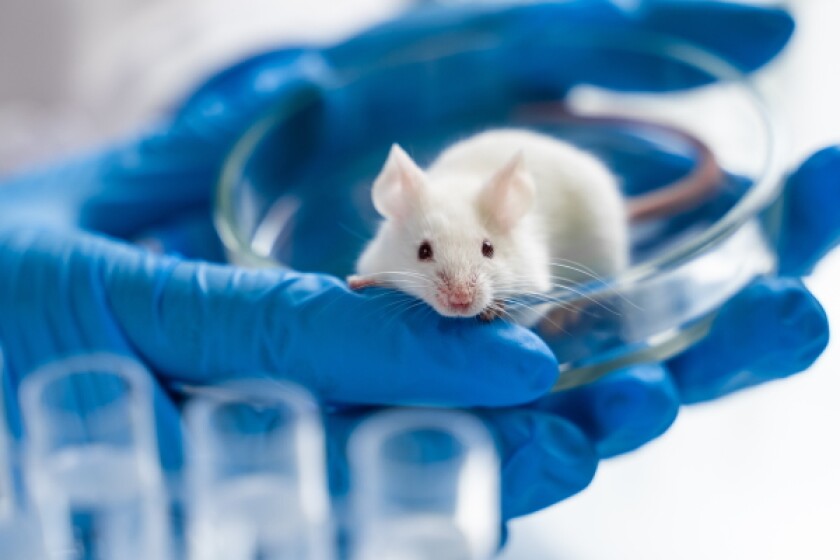Mice and easy: Kymab wins UK Supreme Court case on sufficiency
The court dissented from the previous judgment made by the England and Wales Court of Appeal and invalidated patents held by US-based biotechnology firm Regeneron (EP 1360287 and 2264163). It also upheld UK-based Kymab’s patents for transgenic mice, also known as ‘Kymice’.
The Supreme Court’s decision puts an emphasis on the principle of sufficiency – that a patent claim should be enabled across its whole scope.
In its published judgment, the court said: “[The Court of Appeal’s] analysis watered down the sufficiency requirement, which is a bedrock of patent law, tilting the balance of patent law in favour of patentees and against the public."
Regeneron first brought proceedings against Kymab for infringing its VelocImmune patents to the England and Wales High Court in 2016. Kymab counterclaimed that those patents were invalid for reasons of insufficiency.
Mr Justice Henry Carr agreed with Kymab that the claims were insufficient based on evidence that the one example in the patent of how to make the claimed mouse would not have worked. But if the patents were found to be valid, he noted, Kymab’s various strains of transgenic mice would have infringed claims five and six of the `287 patent and claim one of the `163 patent.
Regeneron appealed the finding of invalidity and Kymab cross-appealed the finding of infringement. The Court of Appeal overturned the original decision and found the patents to be valid. It also dismissed Kymab’s cross appeal, finding that the patents were also infringed.
Kymab was granted leave to appeal to the Supreme Court.
Key connected car case should go to CJEU, says German competition agency
It emerged this week that the competition agency sent a 24-page fax to the Mannheim and Munich courts outlining its perspective on component-level licensing for standard essential patents (SEPs) in connected cars and asking those courts to refer multiple legal questions to the EU’s highest court.
The first question was whether it was an abuse of an SEP holder’s dominant position if the holder refused to license to a supplier and sued the end-product manufacturer for patent infringement and an injunction.
Another was whether an SEP holder was free to choose which company in a supply chain to sue for patent infringement. The office also asked whether the CJEU should define clear cases in which companies at certain stages of the supply chain could be excluded from a licensing offer.
It asked lastly whether SEP holders were free to decide to only offer fair, reasonable and non-discriminatory licences to companies at a certain stage in the production chain.
Finnish telecoms firm Nokia has brought several cases against German car manufacturer Daimler for infringing patents relevant to the UMTS and LTE mobile phone standards. Nokia is currently seeking an injunction against Daimler for this alleged infringement.
The Mannheim and Munich regional courts have yet to decide whether to follow the Federal Cartel Office’s request and suspend these proceedings.
Patent litigation filings rise slightly in US, despite COVID
According to the Docket Navigator database, 1,910 patent cases have been filed in the US district courts between January 1 and June 25 2020, compared to 1,752 in the same time period in 2019. The Patent Trial and Appeal Board has so far received 688 cases in 2020, compared to 639 the previous period.
The only significant change has been where most of these cases are going. Last year, the District Court for the District of Delaware took the lion’s share of patent matters, and had already swept up 529 cases between January and the end of June 2019. This year, so far, 350 matters have been filed there.
A lot of those missing cases seem to be going to the Western District of Texas instead. The jurisdiction received just 101 matters in the first half of 2019, but has swept up 404 in the same half of 2020.
The court’s success in this regard is probably due to the appointment of Judge Alan Albright, and his promise to try matters in an efficient manner, which is particularly appealing to non-practising entities.
Amazon launches counterfeit crimes unit
The team of former federal prosecutors, investigators and data analysts will serve to mine the platform and collect information relevant to knock-off products. Amazon said in its statement that the unit would be dedicated to “investigating, finding and launching legal action and criminal referrals against counterfeiters”.
The new unit will also allow Amazon to “aid law enforcement officials” in their efforts to prosecute counterfeiters and to more effectively pursue civil litigation and work with brands in their investigations.
“Every counterfeiter is on notice that they will be held accountable to the maximum extent possible under the law, regardless of where they attempt to sell their counterfeits or where they’re located,” said Dharmesh Mehta, Amazon’s vice president of customer trust and partner support.
“We are working hard to disrupt and dismantle these criminal networks, and we applaud the law enforcement authorities who are already part of this fight.”
The announcement comes after a Texas court delivered a blow last week to Amazon’s long-argued position that it cannot be held liable for goods sold on its marketplace by third-party sellers, even if they are distributed via its ‘fulfilled by Amazon’ service.
The District Court for the Southern District of Texas ruled that Amazon could indeed be held liable as a seller under Texas’s product liability statute for injuries caused by a defective product sold by a third-party vendor on its website.











